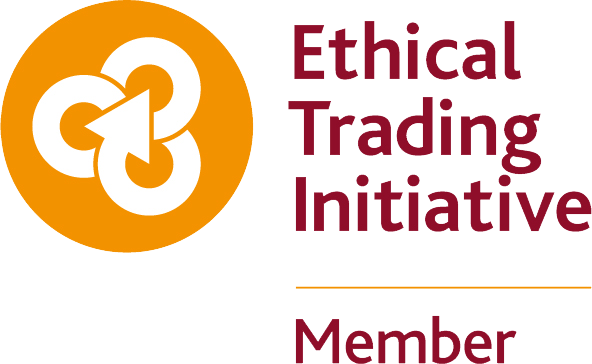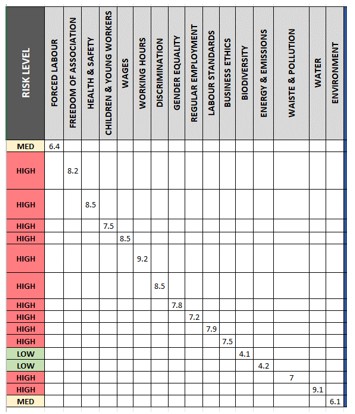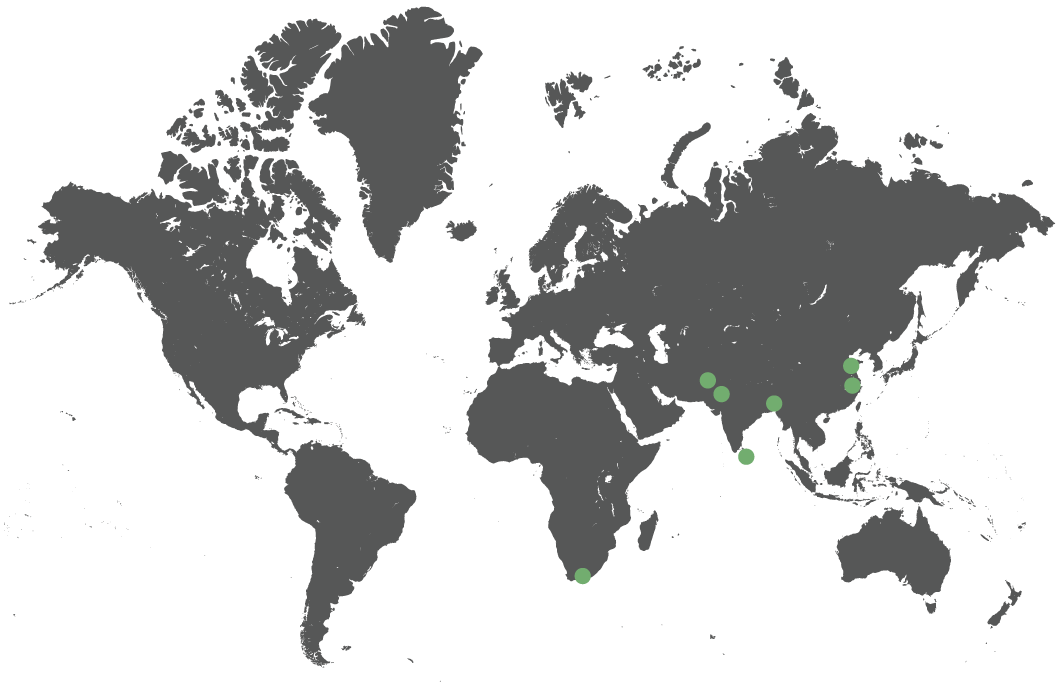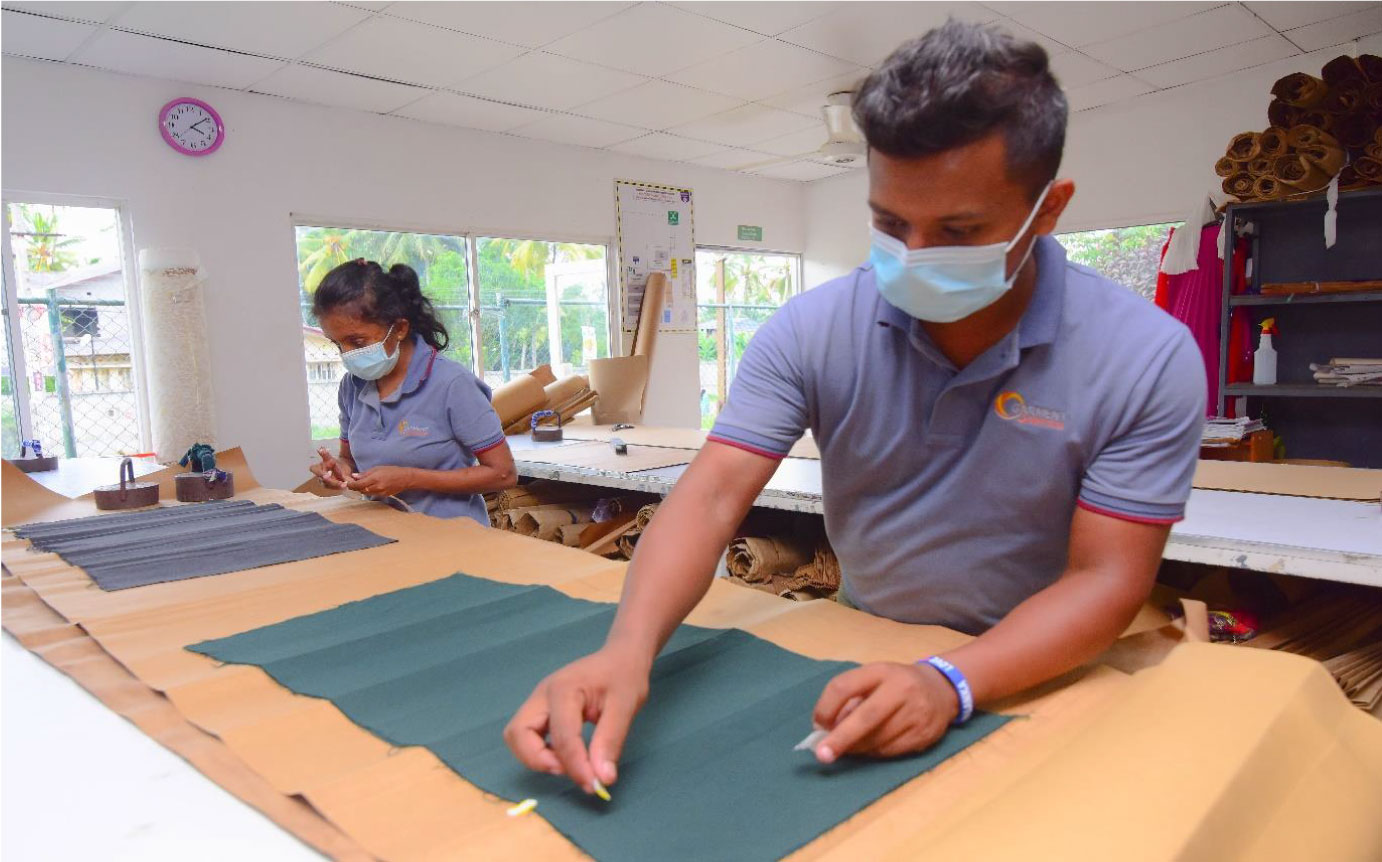The Parently Group Ethical Trading Policy
At The Parently Group (TPG), we are committed to conducting our business operations in a manner that upholds and promotes the highest standards of ethical trading, with a primary focus on respecting and protecting the salient human rights of all individuals involved in our supply chain. We acknowledge our responsibility to ensure the welfare, safety, and dignity of workers and the broader communities impacted by our activities. This policy outlines our dedication to ethical trading, emphasizing respect for human rights across all aspects of our textile clothing business, from product sourcing to customer service.
This policy applies to all group brands (David Luke, Grass & Air, and JUCO), and has full sign off by TPG Managing Director and the full Board or Directors. It also applies to all employees, contractors, suppliers, and partners involved in the operations of TPG. It covers our entire supply chain, with a special focus on suppliers located in Bangladesh, Pakistan, Sri Lanka, South Africa, and China.
Our primary goal has consistently been to establish long term partnerships with all our suppliers. We diligently build an Awareness and focus on their stance on Freedom of Association, Gender Equality, and Health & Safety. In the event of any apprehensions or shortcomings, we promptly Investigate and take the necessary action.
ETI Membership
TPG is proud to be a full member of the Ethical Trading Initiative (ETI). ETI is a well-established collection of companies, trade unions, and non-governmental organisations that collaboratively champion workers’ rights and emphasise the importance of fair treatment and respect throughout supply chains. ETI’s primary mission is to strive for a global society where all workers are liberated from exploitation and discrimination, and can experience freedom, security, and fairness in their working conditions. Our primary goal has consistently been to establish long term partnerships with all our suppliers. We diligently build an awareness and focus on their stance on Freedom of Association, Gender Equality, and Health & Safety. In the event of any apprehensions or shortcomings, we promptly Investigate and take the necessary action.

SEDEX Membership
TPG are members of Supplier Ethical Data Exchange (Sedex) and use the platform to manage much of our ethical auditing and risk management of the supply chain. All suppliers we work with will need to ensure that their production facilities are: registered on Sedex system; linked to TPG; have completed the self-assessment questionnaire (SAQ) in full; and uploaded their ethical audits. In some cases we have accepted other Audits including BSCI.
An audit is only the start of the process, the audit gives us the ability to benchmark the supply chain and to highlight and prioritise the highest salient risks based on location and industry. Once we have this information, there are many more conversations and submissions of data required to ensure we are happy that we are mitigating as much risk as possible.

Human Rights Commitment
We are guided by the United Nations Guiding Principles on Business and Human Rights. Our commitment to respecting human rights includes:
- Right to Life and Security – We will not engage in, support, or tolerate any form of violence, threats, or harm to the life and security of any individual within our supply chain.
- Freedom from Discrimination – We will not discriminate against any worker on the basis of race, gender, age, religion, nationality, disability, sexual orientation, or any other protected characteristic.
- Freedom of Association – Workers are entitled to form and join trade unions or worker organizations of their choice, and we will respect their right to do so.
- Safe and Healthy Working Conditions – We will provide a safe and healthy working environment that complies with relevant laws and regulations, with regular assessments to identify and mitigate risks.
- No Child Labour – We will not employ child labour, and we expect our suppliers to adhere to international standards that prohibit child labour.
- Fair Wages and Working Hours – We will provide fair wages and adhere to the legal working hour limits of the respective regions. Overtime work will be voluntary and compensated fairly.
- Ethical Sourcing – We will ensure that all materials and inputs used in our products are ethically sourced, respecting environmental and social standards.
We understand that each supplier in each country could have a different set of problems, limitations, and local laws that they have to work with. Once we have the bench marking data, we have to take an individual route to work with each supplier so that we can fully understand the situation.
At TPG we feel that promoting and respecting the inclusion of either a Trade Union or a freely chosen Workers Committee, underpins and ensures a collective bargaining approach is taken in all areas and importantly, includes workers rights. Promoting healthy discussions is high on our agenda, reviewing subjects covered and regularity of meetings, understanding how any issues are addressed, and how these are fairly corrected for all parties is critical.
TPG Responsible Sourcing Agreement (RSA)
This agreement helps all our suppliers to understand our expectations when it comes to Ethical trading and demonstrates how seriously we take Human rights. The Agreement is based on the ETI Base code but also explains how we promote constant improvement in all areas. A copy of the RSA can be viewed here.
Internal Procedure Review
When it comes to improvement, we appreciate that we need to put ourselves under the same microscope. At TPG we have an ongoing improvement approach to all our own purchasing practices. We fully understand the impact that our decisions and actions have on the supply chain, they all need to be considered.
Internal Governance
Robust and resilient governance is vital on how we manage and mitigate any risk to human rights (including modern slavery) in supply chains. It is critical we are meeting and exceeding our responsibilities in this regard as a business.
TPG have formed an Ethical Trade Team that covers different areas and levels of responsibility to enable the team to have a much more considered point of view. The team also has the authority to swiftly take action if needed.
They work together to ensure that Ethical Trade continues to improve and is a constant discussion. They are responsible for communicating ALL ethical information on progress, strategy, and any critical issues to the Directors, but also promote all elements of the supply chain to internal staff along with customers and consumers.
The team has full responsibility for devising and growing TPG Ethical Trade Strategy …
- Ian – Sourcing & Supply Chain Director – Responsible for signing off all supplier orders and perfectly placed to ensure compliance with TPG policies.
- Ryan – Product Manager – Ensures product quality and compliance is upheld and is always looking for the next product to introduce.
- Sam – Trade Marketing & Sustainability Lead – Communicates all aspects to trade customers and helps promote our sustainability strategies.
- Diane – Buying & Sourcing Manager – Works and communicates with all current suppliers on all current products. Also is critical in searching for and onboarding any new suppliers.
All have travelled extensively and some for extended periods of time across TPG supply chain. They have built strong relationships to ensure they can constantly challenge suppliers on the Ethical Trading Initiative Base Code requirements.
Highlighting Risk
At TPG we use a benchmarking approach to help us highlight any salient human rights risks. We initially look at Country data (examples below) and then at sector data with the independent ethical audits to produce a risk score for each supplier. The risk score is broken down into further categories (example below) to highlight our most salient risks and these are prioritised, reviewed, and discussed with our factories to ensure improvements are made if required.
The most salient risks highlighted per country for TPG are set out below.
China – Freedom of Association | Fair Wages & Working Hours
While China has regulation regarding working hours (standard 40hr week), these regulations are not always strictly enforced, particularly in our manufacturing industry. Overtime is common and employees may face pressure to work longer hours without proper compensation/breaks and in unsafe working conditions despite Chinas labour laws where enforcement can be inconsistent. China restricts Freedom of Association when it comes to labour unions and workers organisations. Independent labour unions are not allowed, and all officially recognised unions must be affiliated with the All-China Federation of Trade Unions which is controlled by the Communist Party. This limits workers ability to collectively bargain for better working conditions or advocate for their rights. Workers who attempt to organise or speak out against unfair/unsafe conditions fear retaliation from employers and authorities.
Bangladesh & Pakistan – No Child Labour
Child Labour in Bangladesh/Pakistan remains a significant issue, despite efforts to address it with laws in place, enforcement is weak due to limited resources, corruption and lack of political will. There are several other factors that’s contribute to this issue. Poverty is one of the primary issues, many families rely on the income earned by their children to supplement household earnings. Limited access to quality education especially in rural areas forces many children to work instead of attending school. Schools have high dropout rates and inadequate school infrastructures. Bangladesh has a very informal economy in sectors like manufacturing. These sectors often lack regulation making it easier for employers to exploit child labour.
Sri Lanka – Fair Wages & Working Hours
In Sri Lanka fair wages and working hours are regulated by labour laws and regulations but enforcement can be inconsistent. There is a minimum wage system in place to ensure workers receive a fair income, this varies by sector but is periodically revised by the government. Minimum wage is not always sufficient to meet basic needs of workers and families especially considering the cost-of-living increases. Women often face discrimination in the workplace, including lower wages compared to their male counterparts for similar work, this hinders women’s empowerment in the workforce. Standard legal working week is typically 45-48hours spread over 6 days and overtime is compensated at a higher rate than regular hours – this is regulated by law. Compliance does vary across industries and regions where informal employment is common. Workers have the right to form trade unions and engage in collective bargaining but some face challenges in exercising these rights due to intimidation, harassment or lack of representation in certain industries.
South Africa – Working Hours
In South Africa, excessive working hours remain a significant concern for many workers despite legislative efforts (Basic Conditions of Employment Act). This can be due to weak enforcement of labour laws and the informal economy where labour standards are often ignored. There are also many economic pressures with high levels of unemployment where workers may feel pressured to accept long hours to secure employment or maintain their livelihood. This also leaves workers with few options and may be reluctant to challenge unfair working conditions.
At TPG we acknowledge within our purchasing practices we need to take a consistent approach and be conscious about all of our actions. We need to ensure forecasts are accurate/upheld, dispatch dates are realistic (or quoted by the factories themselves), cost price negotiation is done in a timely manner with open understanding and accept delays are occasionally unavoidable. We need to work alongside our manufacturing partners and not against them and continually ensure we are not contributing to any of the risks.
Example of Country Data used…..

Example of Sector Data – Apparel (Pakistan)….

Example of how we could lower risk scores.
Children and Young Workers – Original risk score for country and sector was determined at a (High) 7.5/10. TPG has investigated this area in more detail with our supplier in person and determined recording of National Identity Cards for all employees during the recruiting process and all employees asked were able to provide their Identity cards when asked. We lowered the original risk score (High/Medium) 6.5/10.
We acknowledge that any country with a high/medium risk needs careful managing and continued due diligence. TPG and our manufacturing partners understand this, and no risk score will be reduced by more than 1 point so it is consistently highlighted for regular investigation.
Tier One Suppliers
As part of our Ethical Trading membership, we are required to open published our Tier One Suppliers. All of which can be found here.

Tier Structure
| Tier 1 | Tier 2 | Tier 3 | Tier 4 | Tier 5 |
| Main Production Sites | Product Enhancements | Fabric, Trims & Packaging | Raw Materials | Service providers included in the supply chain |
| Garment Factory, including in-house embroidery units | Outside Embroidery units, Outside Print Units, Outside Pleating facility |
Fabric / yarn suppliers, Dye houses, Trim / Accessory suppliers, Packaging suppliers |
Textile fibres and raw material providers (natural & man made materials) | Sea/air freight providers and Logistic Agents |
Supply Summary Table
| Aida | G&A (footwear/acc) | Accessories |
| Umbrella | G&A (footwear/acc) | Accessories |
| Quig Xian (Runni) | G&A | Knitted/Woven |
| Vap | DL & G&A & JUCO | Knitted |
| Interlink | DL (Bangladesh blazers) | Woven |
| Needledrop | DL | Woven |
| Xinya Garment | DL (China blazers) | Woven |
| Reemaxe | DL & JUCO | Knitted |
| Goodnice | DL & JUCO | Knitted |
| Lancashire | DL | Woven/CMT |
| Garment Services | DL & JUCO | Knitted/Woven |
In Conclusion
TPG is dedicated to promoting and upholding the highest standards of ethical trading, with a primary focus on the salient human rights of all individuals involved in our supply chain.
This policy reflects our commitment to creating a responsible and sustainable textile clothing business. We will work tirelessly to ensure the dignity and well-being of all individuals in our supply chain and the broader communities we touch.

